Yumeko Aizome
Nacimiento : 1915-12-25,
Historia
Yumeko Aizome, born Yachiyo Yokoyama, is a Japanese actress. In 1942, she married two-time Olympic gold medalist swimmer Masanori Yusa (1915-1975) and they received a daughter Makoto. She is now and actress called Naoko Yusa.
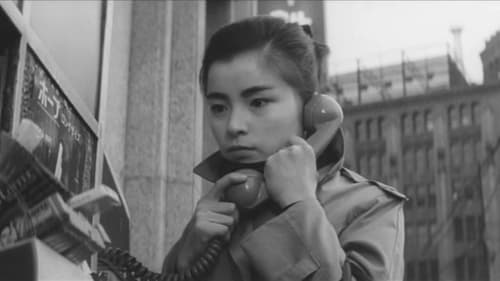
Yoshiko Ôtsuka
When her only relative, her elder brother is accused of robbing and murdering an old woman loan-shark, pretty, young Kiriko travels from her home in Kyushu to Tokyo to get Japan's top lawyer to defend her brother. Unfortunately her naive idealism is shattered when the lawyer refuses to take the case based on her insufficient funds. What follows is a long determined revenge plot that sees the heroine become a Tokyo bar hostess and worse to punish the lawyer. The plot thickens with another murder mystery and a sleuthing reporter.

Ginko será vendida como geisha para que su familia consiga subsistir.

Oren - maid
The purple hood reveals the embezzlement of public money by officials. A remake of Masahiro Makino's 1923 film.

Life and love in corrupt postwar Tokyo, as a young couple struggles against both the law and the mob.

A pickpocket falls in with a group of prostitutes who have one strict rule: none of them may ever sleep with a man without taking his money — falling in love is forbidden.

Mitsue
A 1948 Japanese film.
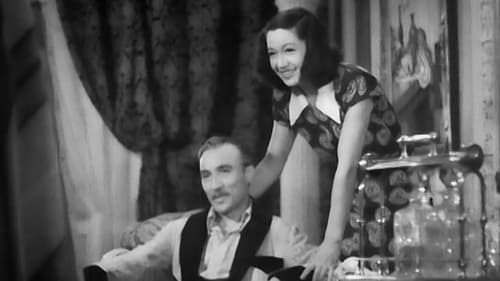
Akiko Anjo
Tras la Segunda Guerra Mundial y la derrota de Japón, la aristocrática familia Anjo se encuentra arruinada. Para saldar sus deudas deben vender su mansión y deciden celebrar una última fiesta... Uno de los clásicos del cine japonés filmado durante la ocupación americana. Película de tintes sociales realizado por el izquierdista Yoshimura con guión de su cuñado, el luego célebre cineasta Kaneto Shindô. Protagoniza la mítica Setsuko Hara.

Based on Kōda Rohan's novella The Five-Storied Pagoda.

Directed by Daisuke Ito.

Venice Film Festival 1939

Based on a Hayashi Fumiko story: a fatherless boy's mother passes him from one aunt to another
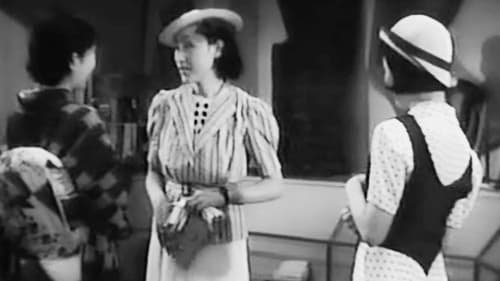
Michiko
Part 2 of a 2-part romance (fist part - Kafuku zempen) based on a story by noted author Kikuchi Kan. In the second half, we discover that Toyomi is pregnant -- and while Shintaro and Yurie are on their extended honeymoon, she bears his child, a girl named Kiyoko. She is supported in adversity by Michiko -- and gets considerable moral support from not only her own mother but also from Shintaro's mother and siblings. Even more surprisingly, Yurie strikes up a friendship of sorts with her. When Yurie learns that the child is Shintaro's, she convinces Toyomi that it would be best to let Shintaro (and her) raise Kiyoko, so Toyomi can get on with making a proper life for herself. Tearfully, Toyomi agrees. Sometime later, Michiko goes to visit Toyomi -- and sees her at work, as a kindergarten teacher.
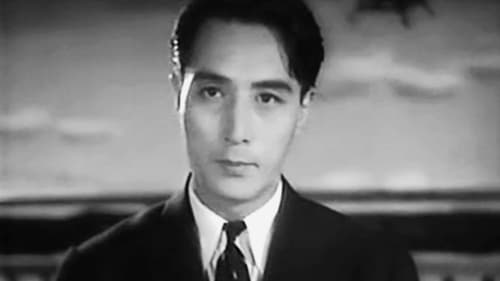
Michiko
Part 1 of a 2-part romance based on a story by noted author Kikuchi Kan. The central character here is Toyomi (played by Takako IRIE, star of Mizoguchi’s "Water Magician), a rich young woman in love with Shintaro (Minoru TAKADA), a rich young man. Unfortunately, Shintaro’s father is in the process of arranging a marriage for him with Yurie (Chieko TAKEHISA), the scion of an even wealthier family. In order to avoid this, the two young lovers flee to Tokyo to live together. When Shintaro comes back to proclaim his intent to marry Toyomi, his father browbeats him into attending the long-arranged marriage meeting with Yurie. While Shintaro is back home, Toyomi goes on a vacation trip with her closest chum, Michiko (Yumeko AIZOME). At a class reunion, Toyomi is to distressed (at not having heard from Shintaro for so long), she doesn’t go out on the town with her classmates. Michiko, however, runs into Shintaro and Yurie (also out on the town), and pulling him aside, demands an explanation.
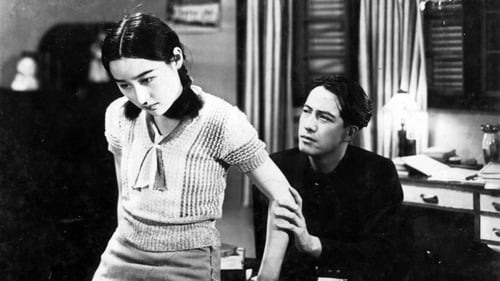
Yaeko
Keitaro is a law student and Yaeko s a high school girl. They are neighbors, and their friendship is starting to develop into something more romantic. Then, Yaeko's sister Kyouko has a breakup with her husband and returns home. Kyouko is clearly interested in Keitaro and Yae becomes anxious.

Mitsuko
The film tells of the strained relationship between a mother and her two sons after the death of the family patriarch.

Elder sister Takiko
The story deals with Fuji, nicknamed Waka-danna (Young Master), the star athlete on his university's rugby team. The son of a wealthy soy sauce manufacturer, Fuji basks in the glory of his athletic celebrity. Attracting the attention of admiring young women, Fuji resists family pressure to settle down and marry after college. Instead, he spends much of his time drinking and womanizing, behavior which eventually leads the college officials to expel him from the team.

Masumi
Sunako y Dora son buenas amigas y compañeras de un colegio religioso de Yokohama. Suelen salir juntas al acabar las clases, hasta que en uno de sus paseos aparece un chulillo llamado Henry que se lleva a Sunako en moto. A partir de ese momento las vidas de Sunako y Dora quedarán sumidas en una espiral de decadencia.

Misako
Ambientada en Yokohama, ciudad portuaria donde el crimen y la prostitución dominan las calles. narra la turbulenta relación entre un gángster y su novia Tokiko, que de día trabaja como mecanógrafa en una empresa. Su rival, trabaja en una tienda de discos y está muy preocupada porque su hermano pequeño empieza a deslizarse por la pendiente del crimen.

Natsuko, dancer
This pair of gentle yet witty and inventive comedies from the director of The Neighbour's Wife and Mine typify both the formal experimentation of early Japanese sound cinema and the social milieux that Shochiku tended to depict. 'Virtually plotless, and feeling more like comic sketches than fully developed stories,' writes Arthur Nolletti, Jr, 'these light comedies, or farces, take a wholly trivial matter (often a socially embarrassing situation) and use it as a springboard for a succession of gags.' Much of the films' distinction comes from the wit of Gosho's direction, the imaginative use of the new sound technology and the charm of the acting, particularly of the heroines (Kinuyo Tanaka in Bride; Hiroko Kawasaki in Groom). Yet in both films, Gosho finds room for some shrewd observation of character and environment, subtly exploring the values and assumptions of the suburban petit bourgeoisie.









